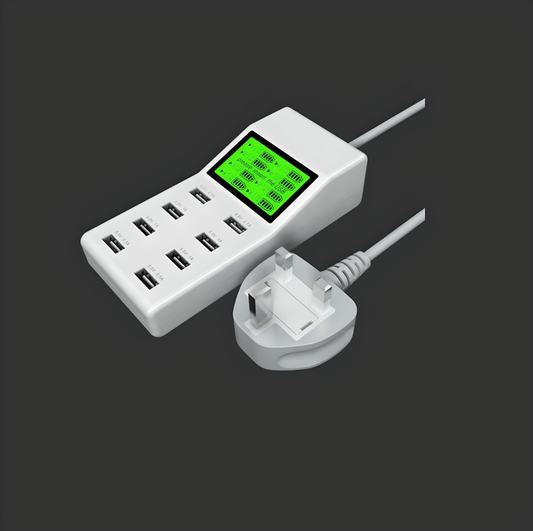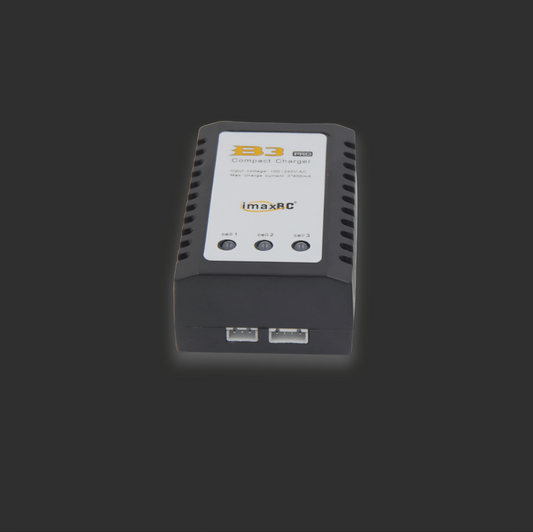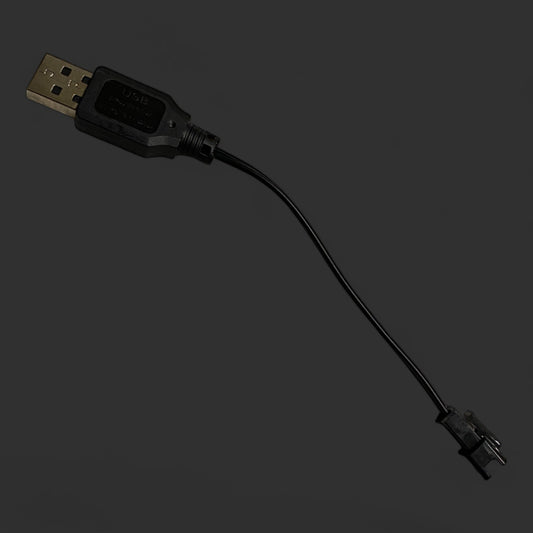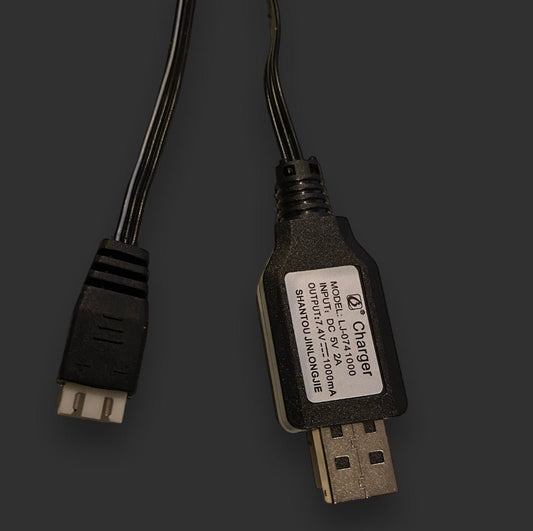11.1v 2000mAh - LJ501855 XT30
11.1v 2000mAh - LJ501855 XT30
Experience Superior Performance: Elevate your device's functionality with the LJ501855 Li-Ion battery, designed for peak performance. With an impressive 11.1V output and a robust 2000mAh capacity, this battery ensures your equipment runs at optimal levels longer.
Product Features:
- High Voltage Output: 11.1V for powerful and consistent energy supply.
- Battery Type: Premium Li-Ion composition for efficient performance and longevity.
- Advanced Connectivity: Comes equipped with an XT30 connector for reliable and secure power transfer.
- Substantial Capacity: 2000mAh allows for extended use, reducing the need for frequent charging.
- Model Assurance: Designated model number LJ501855, ensuring compatibility and quality.
- Certified Safety: CE certified, adhering to European standards for safety and performance. Includes additional certification GB/T18287-25C, meeting rigorous quality criteria.
Reliable and Durable: The LJ501855 battery is not just powerful—it's also built to last. With comprehensive safety certifications, it guarantees reliability for various applications, from RC hobbies to essential electronic devices.
Why Choose LJ501855?
- Extended Device Lifespan: Less frequent charging and reliable performance prolong your device's lifespan.
- Versatility: Ideal for a multitude of devices requiring high voltage and capacity, ensuring broad compatibility.
- Peace of Mind: CE certification and rigorous testing mean you can trust the LJ501855 to power your devices safely and effectively.
Upgrade Today: Don't settle for less. Choose the LJ501855 Li-Ion battery for unmatched performance, reliability, and longevity. Perfect for tech enthusiasts and professional users alike. Upgrade your devices and experience the difference!
Package Includes
No information available.
Couldn't load pickup availability
SKU:LJ501855-XT30-11.1V-2000mAh
Share


| Battery Voltage | Capacity (mAh) | Discharge Rate (C) | Maximum Current Output (A) | Ideal For |
|---|---|---|---|---|
| 7.4V | 1000 | 20C | 20A | Standard blasters, entry-level |
| 7.4V | 1500 | 25C | 37.5A | Intermediate blasters, moderate upgrades |
| 7.4V | 2000 | 30C | 60A | Advanced blasters, heavy upgrades |
| 11.1V | 1000 | 20C | 20A | Enhanced speed and response, entry-level |
| 11.1V | 1500 | 25C | 37.5A | High speed, moderate upgrades |
| 11.1V | 2000 | 30C | 60A | Peak performance, competitive use |
Battery Care
Battery health is crucial for the longevity and reliability of your electronic devices. Properly testing your batteries can prevent potential failures, ensuring that your devices run smoothly and safely. Whether you're using 3.7V, 7.4V, or 11.1V batteries, understanding their voltage levels can help you determine their charge status and overall health.
Safety Precautions in Battery Testing
Before diving into the testing process, it's important to prioritize safety:
- Always wear safety goggles and gloves to protect yourself.
- Conduct tests in a well-ventilated area to avoid any risks associated with battery fumes.
- Never attempt to test a damaged or leaking battery; this can pose serious hazards.
Tools Required for Battery Testing
To get started, you'll need a few basic tools:
- A reliable digital multimeter set to the DC Voltage (V) mode.
- A clean and stable work surface to ensure accurate readings.
Step-by-Step Guide to Testing Your Batteries
- Setting Up Your Multimeter: Ensure your multimeter is correctly set to measure DC Voltage.
- Testing the Battery: Connect the multimeter probes to the battery terminals—red to positive and black to negative—and read the voltage.
Deciphering Battery Voltage Readings
Understanding the voltage readings is key to assessing your battery's health:
-
3.7V Batteries:
- Full Charge: 4.2V
- Nominal: 3.7V
- Discharged: Below 3.0V
-
7.4V Batteries:
- Full Charge: 8.4V
- Nominal: 7.4V
- Discharged: Below 6.0V
-
11.1V Batteries:
- Full Charge: 12.6V
- Nominal: 11.1V
- Discharged: Below 9.0V
Troubleshooting: What to Do If a Cell Is Down or Voltage Is Low
If you notice a cell in your battery pack showing significantly lower voltage or if the overall voltage is persistently low, it's an indication that the battery may be failing or is already damaged. In such cases, professional assessment or replacement is recommended.
Enhancing Your Battery Testing Knowledge
By following this guide, you'll be well-equipped to test and understand the health of your 3.7V, 7.4V, and 11.1V batteries. Regular testing and maintenance can significantly extend the life and performance of your batteries, ensuring your devices run efficiently.
Stay tuned for more insights and tips from Blaster Masters on maintaining optimal battery health for all your electronic devices!

"Keep Blasting, Longer!"
Stock up on batteries:
-
PowerHub Pro 8x USB Charger
Regular price £14.99Regular priceUnit price / per£29.99Sale price £14.99Sale -
B3 Mains Charger:
Regular price £6.99Regular priceUnit price / per -
USB 3.7V SM2 Battery Charger
Regular price £4.99Regular priceUnit price / per -
7.4v 3P Li-ion battery charger
Regular price £4.99Regular priceUnit price / per
Add Gels to your order:
-
800ml Heavy-Duty Speed Loader
Regular price £3.99Regular priceUnit price / per£5.99Sale price £3.99Sale -
Superior Performance 50,000 Hard Gel Balls - 60N Rating
Regular price From £12.99Regular priceUnit price / per£14.99Sale price From £12.99Sale -
Warinterest 3.0 Red Hardened 7mm Gel Balls:
Regular price From £4.99Regular priceUnit price / per -
50,000 Vibrant Orange Gel Balls
Regular price £3.99Regular priceUnit price / per















